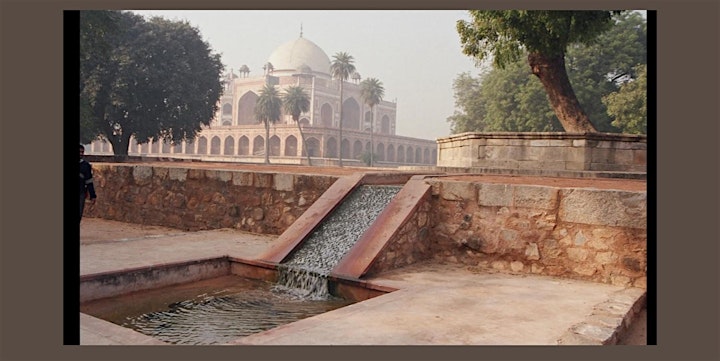This five week online course from the Gardens Trust will be suitable for anyone curious about gardens and their stories – whether absolute beginners or those with some garden history knowledge. Running from April 14 – May 14, the course aims to help participants recognize important eras, themes and styles in mainly British garden history from the earliest times to today, grasp something of the social, economic, political and international contexts in which gardens have been created and find greater pleasure in visiting historic gardens. You can sign up for whole series or dip into individual talks. There will be opportunities to discuss issues with speakers after each talk, and short reading lists for further exploration.
Week Four on May 7 is Early Mughal Gardens with Ratish Nanca. Babur (1483-1530), founder of the Mughal dynasty, considered Samarqand (Uzbekistan) his rightful kingdom and ruled from Kabul for almost two decades. Gardens in this part of Central Asia were the predominant places for both court-life and entertainment. Babur and his successors also ruled Hindustan (northern India) from the early 16th century for over 300 years. Similar gardens were not easily possible in the heat of Hindustan, plus Indian rivers were ‘sea-like’ and did not resemble the streams that were channelized through Afghan and Central Asian gardens. So Babur set about building char-baghs (four-part gardens) on a pattern familiar to him. His successors, principally, Akbar, Jahangir and Shahjahan enthusiastically followed suit.The Mughal Garden traditions of flowing water, raised pathways, geometric layouts and enclosed gardens were consistent across Kashmir, Kabul, Lahore, Agra and elsewhere in the Mughal empire. Recent work by the Aga Khan Trust for Culture has also revealed that similar traditions were followed by the Qutb Shahi Sultans at Golconda in southern India.
Ratish Nanda, Conservation Architect, is India CEO for the Aga Khan Trust for Culture. He heads the interdisciplinary AKTC teams presently undertaking the two major urban conservation projects in India: the Nizamuddin Urban Renewal Initiative, Delhi and the Qutb Shahi Heritage Park Conservation in Hyderabad. For AKTC, he was earlier responsible for the Baghe Babur restoration (2002-2006), in Kabul, Afghanistan and the garden restoration of Humayun’s Tomb (1999-2003). His major publications include Delhi, the Built Heritage: A listing, released by the Prime Minister of India (INTAC, 1999); Delhi: Red Fort to Raisina (Roli Books, 2012); Conservation of Historic Graveyards (Scotland) (Historic Scotland, 2001) and Rethinking Conservation: Humayun’s Tomb (Mapin, 2015).
For tickets, visit www.eventbrite.co.uk Ticket holders can join each session live or view a recording for up to 2 weeks afterwards. £8 each or all 5 for £35 (Gardens Trust members £6 each or all 5 for £26.25) Attendees will be sent a Zoom link 2 days (and again a few hours) prior to the start of the first talk (If you do not receive this link please contact us), and a link to the recorded session will be sent shortly after each session and will be available for 2 weeks.


